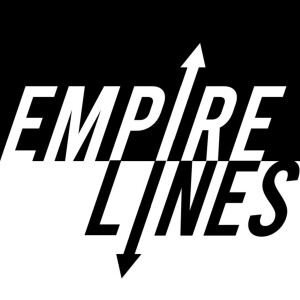
White Zombie, Victor Halperin (1932) (EMPIRE LINES x Visions of Haiti, Barbican Cinema)
 2024-01-05
2024-01-05
Curator Matthew Barrington marks 220 years since the Haitian Revolution, the only successful slave uprising, unreeling how resistance continues with a series of films, from the first zombie horrors, to contemporary Caribbean and diasporic documentaries.
The Caribbean island of Haiti is often reduced to binary representations, of the 18th century Haitian Revolution and its iconic leader, Toussaint Louverture, or environmental disasters, with the earthquake of 2010. But resistance has long been central to Haitian identities and the popular imagination - past and present. Since 1492, when Christopher Columbus arrived on Hispaniola, now Haiti and the Dominican Republic, Spanish, Dutch, English, and French colonists all attempted to ‘settle’ the land. The Revolution was the first and only successful uprising of self-liberated slaves against French colonial rule in the island region of Saint-Domingue, a rebellion that still resounds across the islands and diasporas today - whether in the words of Naomi Osaka, or filmmakers like Esery Mondesir, who say ‘we’ve been screaming Black Lives Matter (#BLM) for over 200 years’.
Marking 220 years since the Revolution, and formation of the first independent Black republic on 1 January 1804, Barbican Cinema curator Matthew Barrington shares some of the ways Haiti is depicted on screen. We cover 70 years of films, travelling from ‘exotic’ plantations to more everyday scenes, starting with Victor Halperin’s White Zombie (1932), which birthed the horror genre. Drawing on Bela Lugosi’s portrayal of factory owner Murder Legendre, and own othering, we discuss how such movies often sensationalised local spiritual practices as ‘superstitions’, and reinforced racial and gender hierarchies with their Western European-centric gaze. But they can also be read more subversively, in relation to colonialism, as evidence of forced labour, slavery, and capitalist extraction. We find similar tropes in gothic and body horrors, from vampires to killer plants, and connect with post-colonial landscapes across the Caribbean like Cuba.
Contemporary filmmakers also grapple with the ‘ghosts’ of colonialism and capitalism. Matthew explains how the continued extraction of wealth from the islands, many of which were forced to pay reparations to their former enslavers, has perpetuated political instability, forcing many into exile or to migrate for economic opportunities. He shares classic films by Raoul Peck and Arnold Antonin, connecting with Third Cinema, and more experimental works by award-winning makers like Miryam Charles and Gessica Généus. Exploring the occupation and ongoing intervention by the US, and the dictatorship of Jean-Claude Duvalier in the 1970s and 1980s, we see how the distance of diasporas often creates the conditions for rebellion, protest, and radical community-building today, as well as pluralising perspectives of well-known landscapes, like New York City. Finally, we discuss the importance of art, visual culture, and Carnival in the context of this ongoing underdevelopment and high illiteracy rates in Haiti, and how public institutions like the National Portrait Gallery will mark this vital anniversary. Visions of Haiti ran at the Barbican Cinema in London throughout October 2023.
WITH: Matthew Barrington, film curator and researcher. Matthew is the Manager of the Birkbeck Institute for the Moving Image in London, a programmer for the Essay Film Festival and the London Korean Film Festival, and has worked with the Open City Documentary Festival. He is also a curator of cinema at the Barbican Centre, including the series, Visions of Haiti.
ART: ‘White Zombie, Victor Halperin (1932) (EMPIRE LINES x Visions of Haiti, Barbican Cinema)’. SOUNDS: ‘White Zombie, Victor Halperin (1932)’.
PRODUCER: Jelena Sofronijevic.
Follow EMPIRE LINES on Instagram: instagram.com/empirelinespodcast
And Twitter: twitter.com/jelsofron/status/1306563558063271936
Support EMPIRE LINES on Patreon: patreon.com/empirelines
More Episodes
Create your
podcast in
minutes
- Full-featured podcast site
- Unlimited storage and bandwidth
- Comprehensive podcast stats
- Distribute to Apple Podcasts, Spotify, and more
- Make money with your podcast
It is Free
- Privacy Policy
- Cookie Policy
- Terms of Use
- Consent Preferences
- Copyright © 2015-2024 Podbean.com






